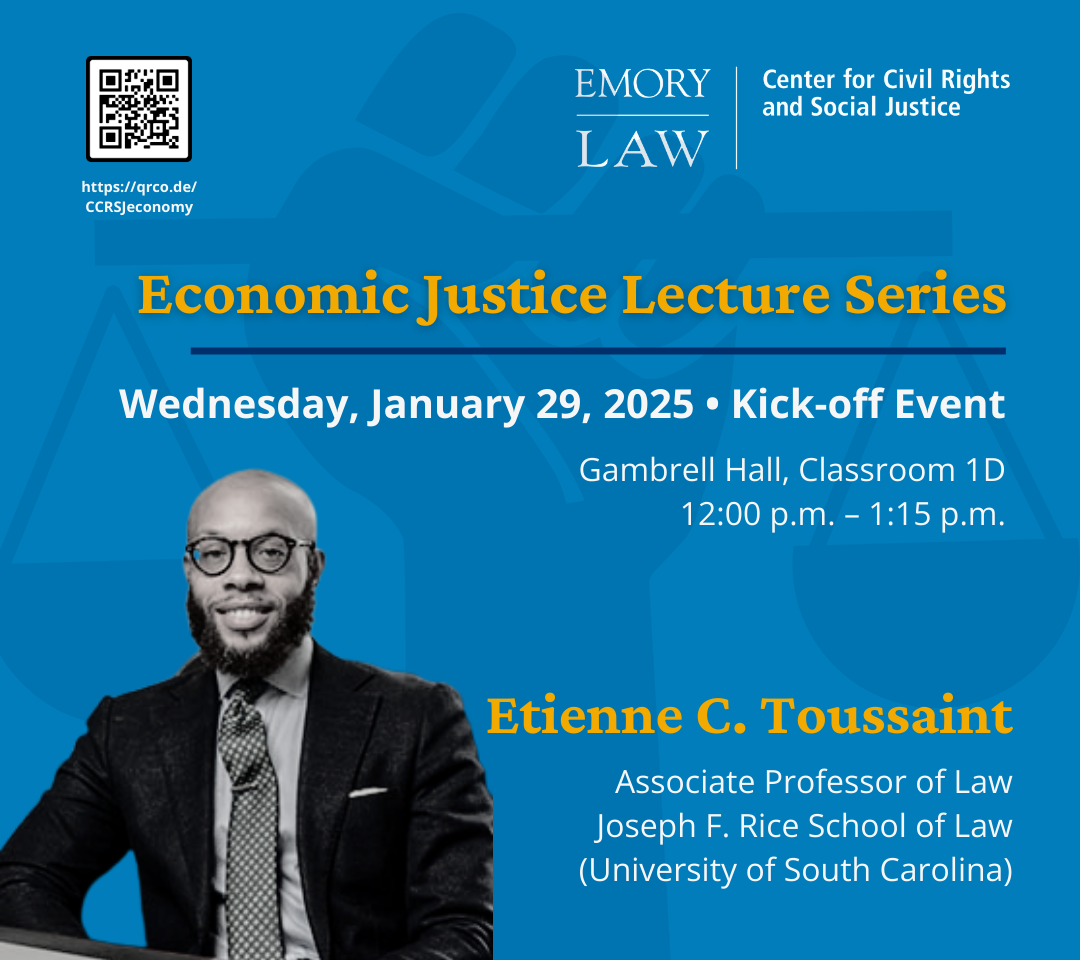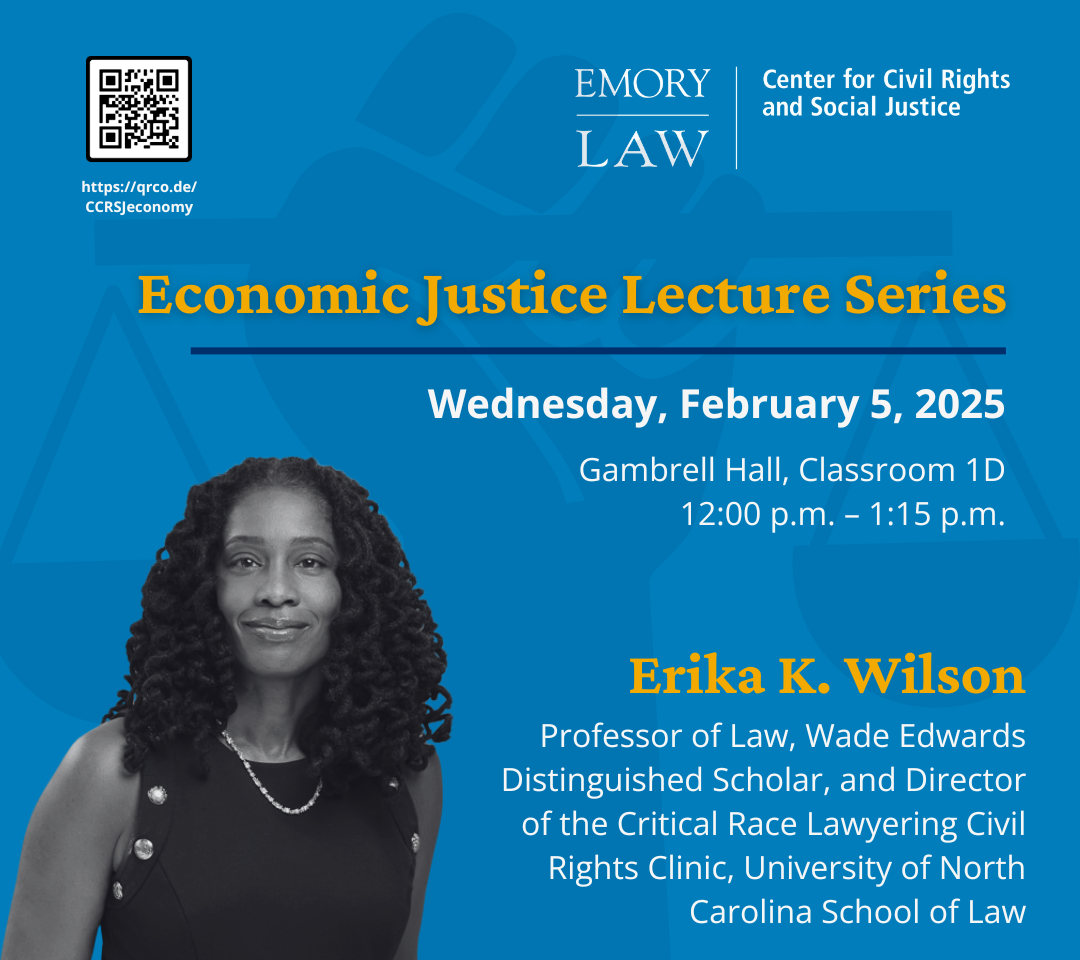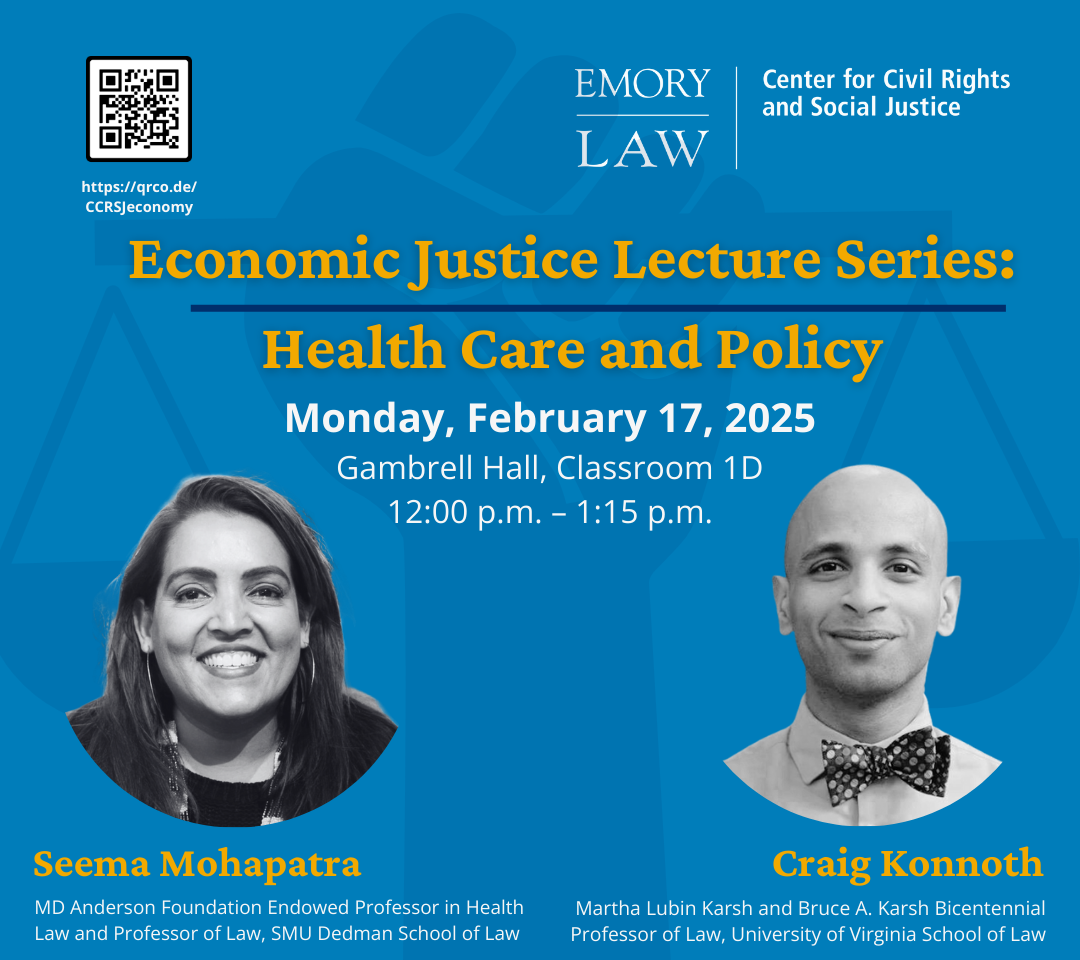Events
Economic Justice Speakers Series
The Center for Civil Rights and Social Justice specializes in all areas of injustice. Our central areas of concern include Criminal Justice Reform, Democratic Participation, Education, Environmental Justice, and Health Care and Disparities. It is impossible to analyze these issues in a vacuum. Instead, they intersect with gender, disability, race, sexual orientation, gender identity, class, and other conditions of disempowerment. Contemporary civil rights scholars address concerns of poverty (and other matters) as social justice. They argue that the government is obligated to create conditions for human flourishing. Class is a main contributor to inequality in the United States and the global community.
In a six-part lecture series during Spring 2025, CCRSJ will convene leading scholars in this field to discuss how social justice concerns relate to the Center’s primary policy concerns. We hope to see you at these events to learn more about this compelling subject.
Each lecture will be held in Gambrell Hall, Classroom 1D, 12 – 1:15 p.m. and lunch will be provided.
Wednesday, January 29 - Kick Off Event
Guest Speaker: Etienne C. Toussaint, Associate Professor of Law, Joseph F. Rice School of Law (University of South Carolina)

Wednesday, February 5 - Education
Guest Speaker: Erika K. Wilson (Professor of Law, Wade Edwards Distinguished Scholar, and Director of the Critical Race Lawyering Civil Rights Clinic, University of North Carolina School of Law)

Monday, February 17 - Health Care and Policy
Guest Speaker: Seema Mohapatra (MD Anderson Foundation Endowed Professor in Health Law and Professor of Law, SMU Dedman School of Law) and Craig Konnoth (Martha Lubin Karsh and Bruce A. Karsh Bicentennial Professor of Law, University of Virginia School of Law)

Monday, March 3 - Democracy
Guest Speaker: Susan Carle (Professor, American University, Washington College of Law)

Future Dates
The series will cover five key areas: Democracy and Voting Rights, Environmental Justice, Education, Criminal Justice, Healthcare and Policy.
- Monday, March 24, 2025 | Criminal Justice
- Monday, April 7, 2025 | Environment